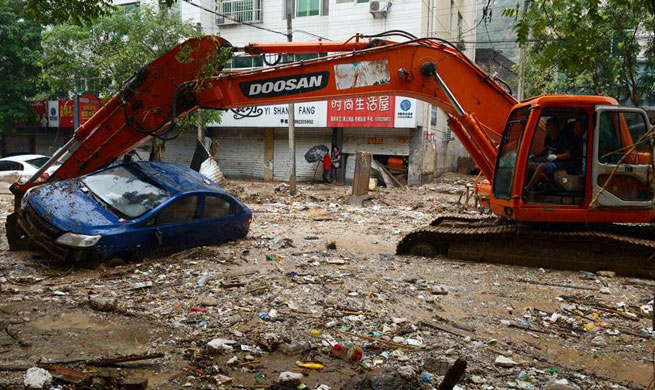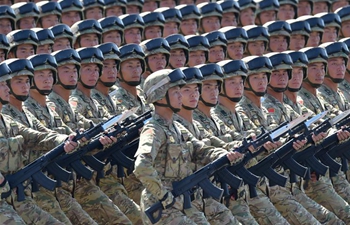MOGADISHU, July 27 (Xinhua) -- The UN mission said Thursday it has concluded three-day training for 30 mental health professionals from institutions in Baidoa, the capital of Somalia's South West state on the state of mental illness in the country.
The UN Assistance Mission in Somalia (UNSOM) said the three-day capacity building workshop would boost efforts to treat the increasing number of mental illness cases in the Horn of Africa nation.
Amelie Runesson, a Corrections Advisor with UNSOM said the training aimed to shed light first of all for the stigma surrounding mental health and then provide participants with the basics in common psychiatric disorders, such as post traumatic stress disorder, and also to give them the basics in psychological assessment, specifically suicide screening.
"I think one reason for that is due to the war, that a lot of people have encountered for instance attacks and sudden deaths," said Runesson in a statement issued in Mogadishu.
According to UNSOM, participants discussed ways to end the stigma surrounding mental illness and review treatment techniques for common psychiatric disorders.
"In Somalia individuals with mental health problems are commonly called crazy,'" noted Runesson.
"One of the key messages delivered was the importance of rather understanding it as an illness which can be treated. Changing the vocabulary is a first step to challenge the stigmatization," Runesson said.
Participants included staff from Baidoa central prison, the city's psychiatric hospital, and the Baidoa Disarmament, Demobilization and Rehabilitation centre.
The state of mental health in Somalia has been on the back burner of health priorities for decades, although available statistics show that the incidence of mental illness in the country is one of the highest in the world.
Figures at the Baidoa psychiatric hospital indicate an increase in the number of patients diagnosed with mental illnesses. Prisoners and detainees are more prone to mental illness, according to the World Health Organization.
Most patients present symptoms of conditions such as schizophrenia, anxiety, depression and epilepsy, according to the hospital's director.

















